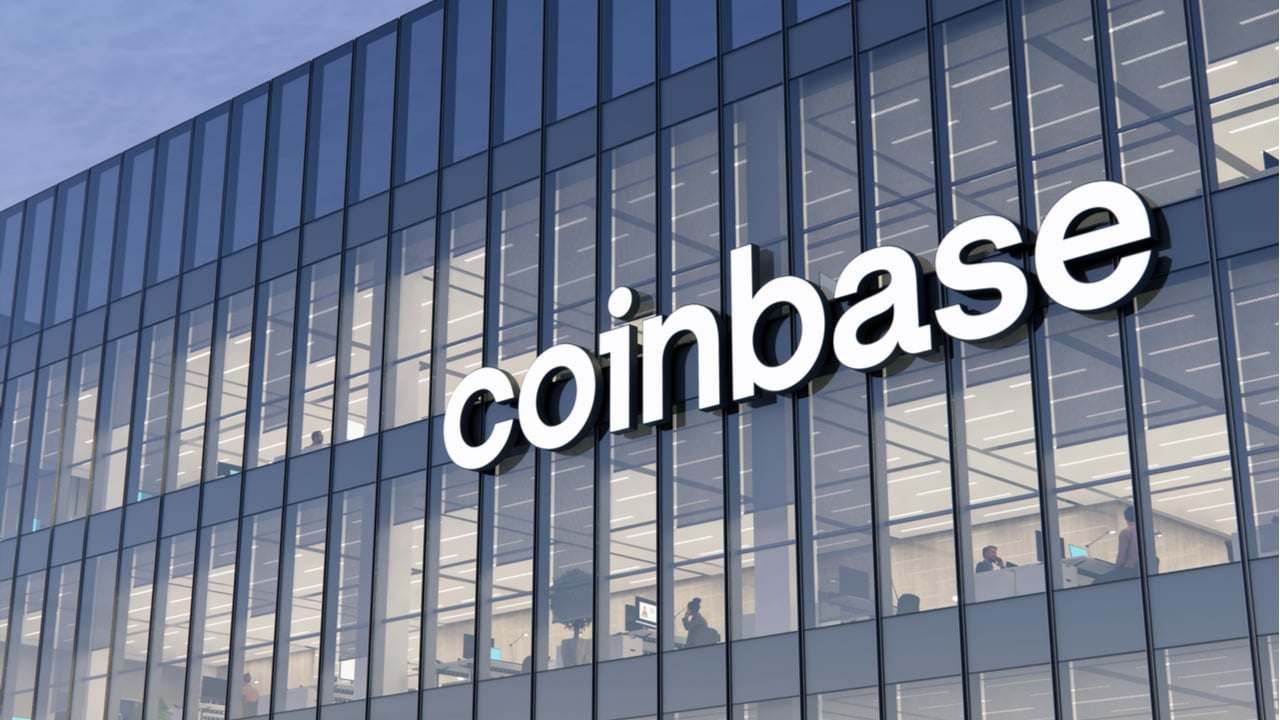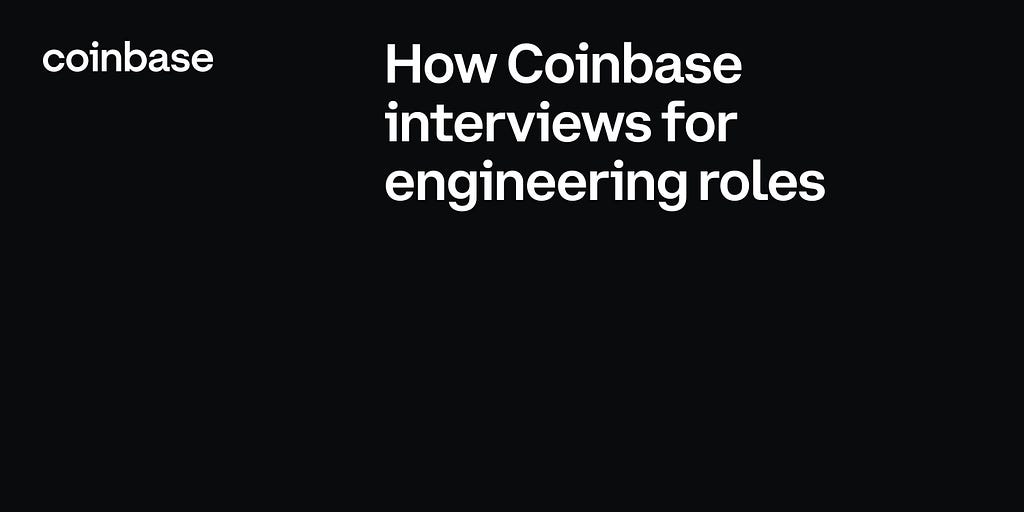 Leading U.S. crypto exchange Coinbase is slowing hiring, citing the current down cycle in the market as a reason to rethink its staffing strategy. The company’s management believes the move will allow the trading platform to match its hiring needs with its business goals. Coinbase to Reassess Headcount Needs, Focus on Integrating Recent Hires Cryptocurrency […]
Leading U.S. crypto exchange Coinbase is slowing hiring, citing the current down cycle in the market as a reason to rethink its staffing strategy. The company’s management believes the move will allow the trading platform to match its hiring needs with its business goals. Coinbase to Reassess Headcount Needs, Focus on Integrating Recent Hires Cryptocurrency […]
Talent recruitment experts say that crypto firms are in dire need of the best leadership available to scale their businesses.
The crypto industry has enjoyed astronomical growth over the last couple of years. Now, talent recruitment experts say that crypto firms are in dire need of good leadership to scale their businesses.
Previously seen as a nascent market, crypto is now a fast-maturing industry that attracts a lot of talent, David Richardson, partner at executive search firm Heidrick & Struggles, told Cointelegraph. “It's all driven by the growth rate of these firms and hiring leaders that can help them continue to scale and continue to keep pace with the growth rate in the business,” he said.
Crypto companies are looking for executives who have scaled businesses successfully. They are ready to onboard such talent without prior knowledge of crypto or digital currency, added Heidrick & Struggles engagement manager Adrianna Huehnergarth. “We’re seeing a lot of need for heads of engineering leaders who have built teams of scale,” she continued.
Experts said the most sought-after skills for the C-suite are engineering, legal, finance, go-to-market and corporate development. Apart from expertise, companies seek low-ego executives who display adaptability, passion and excitement for growth and the mission of the space.
Since the regulatory landscape tends to be different in each country, the significance of regulatory and legal executives make a lot of sense, Huehnergarth said. “Many companies we've been working with have had more of a regional focus instead of a more traditional, centralized type of setup.”
Related: Top US banks offer big incentives to lure crypto talent
For the crypto ecosystem, remote work became a major incentive to attract the top talent, Huehnergarth said, adding that many companies have gotten rid of their headquarters. The long-term incentives and cash compensation are also high enough to retain the talent.
“[Crypto] companies have the cash and have been bidding away very senior talent who only have one or two years’ of crypto experience with offers that they cannot turn down.”
Some companies are more tech than fin, and some companies are more fin than tech in the overall fintech ecosystem, Richardson pointed out. A lot of that culture is determined by the founding team and how they set it up early. He explained that while most crypto businesses start with a core tech team, they require GMs, sales, finance, legal and compliance talent as they scale up.
As the company grows, a lower degree of technical competence becomes sufficient, he added. When the technical barriers lower, people who have more broad experience in investing in alternatives are able to look at crypto as an excellent avenue to explore.
 National Bank of Ukraine is hiring a blockchain expert who will likely support its digital currency project. The vacancy has been announced as the financial institution prepares to pilot e-hryvnia salary payments for government workers as early as this year. NBU Posts Blockchain Developer Ad on Linkedin The central bank of Ukraine is looking to […]
National Bank of Ukraine is hiring a blockchain expert who will likely support its digital currency project. The vacancy has been announced as the financial institution prepares to pilot e-hryvnia salary payments for government workers as early as this year. NBU Posts Blockchain Developer Ad on Linkedin The central bank of Ukraine is looking to […]
Coinbase is on a mission to increase economic freedom in the world. In order to achieve this mission, we need to build a high performing team. Our top priority is attracting and retaining great talent. and we take extraordinary measures to have exceptional people in every seat. This post is designed to give candidates a sneak preview of what we look for in our technical interview process.
In this post we’ll focus on what we look out for in an engineering candidate. Some of this advice will apply to other positions too, but it’s most useful if you want to join us as an engineer.
When joining the interview process you’ll progress through a series of stages. In each stage we’ll assess you in different ways to ensure the role you’re interviewing for is a good mutual fit. While the exercises and questions you face will vary, we always look out for the Coinbase cultural tenets:
Learn more about these tenets here. You may not get an opportunity to display all of these qualities at every interview stage, but this will give you a good idea of what we are looking for. When we assess your performance we will do so almost exclusively through the lens of these tenets.
The interview stages are (typically but not always):
You will need to perform well at all stages to get an offer, so it’s important to prepare for each interview stage. That said, most people that are unsuccessful in their Coinbase interview loop fail on the pair programming stages. Let’s start there.
In the pair programming interview(s) you will work through a problem with one of our engineers. To start, your interviewer will provide you with a short brief of the problem. Now it’s up to you to code a solution to the problem.
It’s not enough to solve the problem to pass this stage. We are not looking for a minimal Leetcode-style optimal solution. We are looking for evidence that you are able to produce production-grade code. As a result, we assess both the end result and how you got to the result, giving credit for both components. If you get stuck on a bug, how do you overcome it? Do you know your tooling well? Do you use the debugger with a breakpoint, or do you change random lines of code until it works? Is there a method to how you approach a coding problem?
We will look beyond the completeness and correctness of your solution. We will assess the quality and maintainability of your code, too. Is your code idiomatic for your chosen language? Is it easy to read through and understand? What about variable naming? Do you leverage the tooling that is available to you in your IDE and terminal? How can we be confident that your code is correct? Did you test it?
How well do you understand the problem? Do you ask relevant clarifying questions? How well do you take the interviewer’s feedback?
Don’t be discouraged if you do not reach the very end of the problem. We design our interview problems to fill more than the allotted time. The interviewer will stop the interview after either 90 minutes have passed, or when they are confident in their assessment. Ending an interview early is not always a bad sign.
Most candidates who fail the interview do so because their code or process isn’t good enough. We do not typically fail you for an incomplete solution.
Let’s look at a practical example. Suppose the problem is:
Given a list that contains all integers from 1 to n — 1. The list is not sorted. One integer occurs twice in this list. Write a function that determines which.
Here’s the first example solution (there are errors!):
def duplicates(integers):
"""duplicates takes a list of integers and returns the first duplicate value or None if all values are unique"""
if not isinstance(integers, list):
raise ArgumentError(“expected list as input”)
sorted_integers = integers.sort()
previous_value = nil
for x in sorted_integers:
if x == previous_value:
return x
previous_value = x
return None
def test_duplicates():
assert duplicates([]) == None, "empty array is considered unique"
assert duplicates([1, 2]) == None , "array of unique values returns None"
assert duplicates([1, 2, 2]) == 2, "duplicate returns the duplicate integer"
assert duplicates([1, 2, 2, 1]) == 2, "multiple duplicates returns the first duplicate"
And the second solution (there are errors here, too!):
def dupilcateIntegers(l ):
n = len(l)
return sum(l) - ((len(l)+1) * len(l))/2
The first solution doesn’t actually solve the problem. But the author seems to have thought about error handling and input validation. The candidate has thought about the problem and its edge cases. Furthermore the solution attempts to also solve for a larger and more general class of the same problem. They’ve added a short docstring and the code is generally well-formatted and idiomatic python. We would be inclined to consider the first solution a pass. There’s a bug in the implementation and the algorithm is not optimal yet the code is maintainable and generally well structured (with tests too!). This solution is good.
The second solution is correct and optimal, yet this candidate would not pass the interview. The formatting is sloppy and there are spelling mistakes, and unused variables. The code itself is terse and difficult to understand. This candidate would probably be rejected.
Finally, also keep in mind that you have only 90 minutes to complete the problem. Our problems don’t really have any tricks in them, and the naive solution is typically good enough. We won’t ask you to invert a binary tree, but we will ask you to solve a simplified version of a real life problem. We’re looking for production-like code, not hacky solutions.
So how would you best prepare for the pair programming interview with us? Don’t focus too much on grinding Leetcode. It’s better to focus on the fundamentals. Learn your editor, your debugger, and your language. Practice writing well formatted and well structured code with relevant method and variable names, good state management and error handling.
In our system design interview you will be asked to design the general architecture of a real-world service. For example: How would you design a Twitter feed?
The brief is typically short, and it’s up to you to ask the interviewer for clarifications around the requirements.
Don’t dive too deeply into any one specific aspect of the design (unless asked by the interviewer). It’s better to keep it general and give a specific example of a technology you know well, that would be a good fit for the use case at hand. Example: “For this service an RDBMs database would be a good choice, because we don’t know exactly what the queries will look like in advance. I would choose MariaDB.”
Be sure to address the entire problem, and if you’re unsure if you’ve covered everything ask the interviewer to clarify, or if there’s anything they’d like you to expand upon.
If you are unsure about the specifics of a particular component in your design, it’s best to try to let your interviewer know and to tell them how you would go about finding the answer. Don’t wing it — being wrong with confidence is a negative signal, whereas humility is a positive signal. A good answer might be: “I don’t know if the query pattern and other requirements fit well with an SQL database here, but I have the most experience with MariaDB so it would be my default choice. However, before making a decision I would have to research what its performance might look like in this specific case. I’d also research some NoSQL alternatives like MongoDB and perhaps also a column wide store like Cassandra.”
You’ll be assessed on your ability to explore the requirements, and how well your design might perform in real life. Do you take scalability into account? How about error handling and recovery? Do you design for change? Have you thought about observability? You’ll also be assessed on how well you communicate your design and thoughts to the interviewer.
During our interview process, we look for signals that help us understand whether there is a skill match but more importantly a cultural fit. Some of the signals we look for:
Thanks for taking the time to learn a little bit more about our interview process. If you are interested in building the future of finance, have a look at our open roles here. Good luck!
How Coinbase interviews for engineering roles was originally published in The Coinbase Blog on Medium, where people are continuing the conversation by highlighting and responding to this story.
 The Israeli intelligence service, Mossad, is now looking to hire someone who understands digital currencies. According to the job posting, the role requires extensive expertise in the field of financial technologies. Mossad Recruiting Expert With Fintech Background Israel’s Institute for Intelligence and Special Operations, Mossad, is seeking an expert with a deep understanding of cryptocurrencies […]
The Israeli intelligence service, Mossad, is now looking to hire someone who understands digital currencies. According to the job posting, the role requires extensive expertise in the field of financial technologies. Mossad Recruiting Expert With Fintech Background Israel’s Institute for Intelligence and Special Operations, Mossad, is seeking an expert with a deep understanding of cryptocurrencies […] With a friendly attitude towards financial innovation, the Republic of Ireland has become a desired destination for fintech businesses that need unimpeded access to the common European market. Cryptocurrency companies have been opening offices in the EU member state with some well-known players now looking to hire local talent. Major Crypto Companies Set Up European […]
With a friendly attitude towards financial innovation, the Republic of Ireland has become a desired destination for fintech businesses that need unimpeded access to the common European market. Cryptocurrency companies have been opening offices in the EU member state with some well-known players now looking to hire local talent. Major Crypto Companies Set Up European […]
If there are not enough developers to go around, why not train some more?
Amid a bull market for decentralized finance that has teams developing new products at a breakneck pace, the demand for smart contract developers couldn’t be higher — but unfortunately, the amount of available talent couldn’t be lower.
Team members from multiple projects have taken to Twitter in recent weeks to gripe about the shallow hiring pool, including representatives from high-profile mainstays like Yearn.finance and SushiSwap. The complaints come despite hefty incentive packages that include token allocations and generous salaries. But regardless of the carrots projects offer, there simply aren't enough developers to go around.
Fuck, we've hit the "developer crunch" portion of the bull market
— I'm just a doggie boi (@fubuloubu) April 7, 2021
In the absence of established developers, multiple projects have instead taken to nurturing new ones with an unusual, but in many ways ideal, recruitment tool: hackathons.
Last weekend, multiservice venture capital outfit Delphi Digital and IDEO CoLab co-sponsored a weekend hackathon. Designed specifically to incubate promising young teams, successful projects from the hackathon were then invited to an 11-week mentorship program with the possibility of a full seed investment at the end.
“We found early on that hackathon style events are better at identifying talent than they are at surfacing investable ideas,” said Delphi’s José Macedo. “That’s mostly because getting to an investable idea in a few days is really hard, but it’s also because we’re simulating what it's like to work with folks and see things like their bias to action and how they work with others. People stand out pretty quickly based on their actual behaviors which allows us to identify and work with talent based on merit.”
Macedo referred to hackathons as “one of the main channels” the organization uses for hiring and identifying investment-worthy early projects.
Likewise, Chainlink is currently running a virtual hackathon set to conclude on April 11. According to community manager Keenan Olsen, the $130,000 prize pool brought in over 300 project submissions. Fostering and developing talent was baked into the process from the get-go, with multiple workshops scheduled throughout the event.
Synthetic asset platform Synthetix also has a close eye on the Chainlink hackathon as well, as the project’s GrantsDAO voted to co-sponsor the event. 15 different projects are building on top of the protocol as a result, and the decentralized autonomous organization may considering funding them for further development after the event concludes.
According to Stephen Fluin, the head of developer relations at Chainlink Labs, hackathons are a great way for young talent to get noticed.
“We actively hire both from our community and people we meet at events and hackathons. Hackathons are a great way to showcase your ability to our team, who are often following the event, teams, and projects closely,” he said.
In a Tweet Friday, Macedo revealed that the Delphi team is bullish enough on hackathons that it's running yet another, just a month after one concluded:
Capital is abundant rn but talent is scarce @Delphi_Digital is a squad of 30+ researchers, investors & builders. Our goal is help build and fund the products that take crypto mainstream
— José Maria Macedo (@ZeMariaMacedo) April 9, 2021
That's why we're launching the #deficonnected hackathonhttps://t.co/brDOpiWjqP
It’s a talent pipeline Delphi hopes to formalize in the coming months.
"Our goal is to create a repeatable process that allows us to source and identify great talent, build strong teams and use our experience to help guide them to solve some of the most important problems in the space."